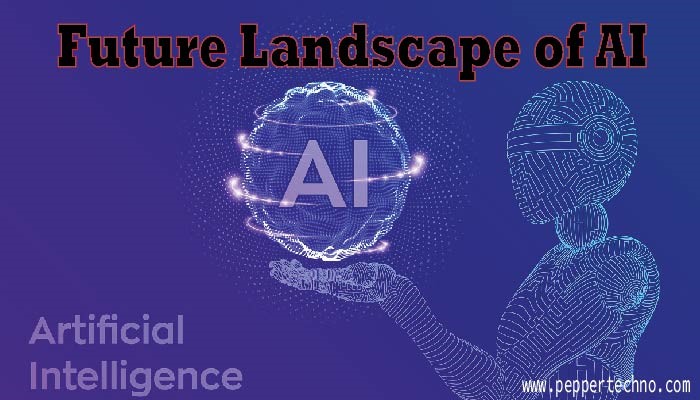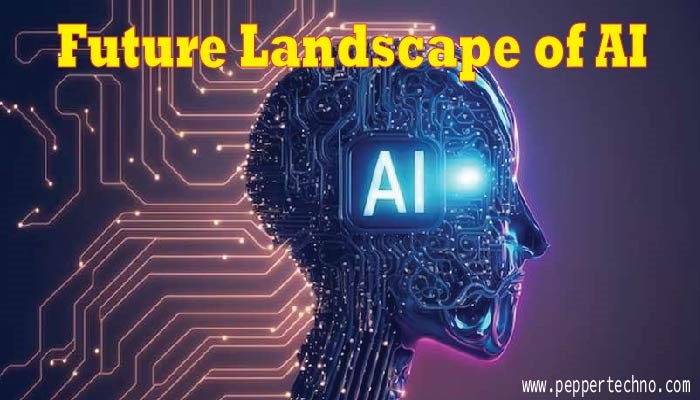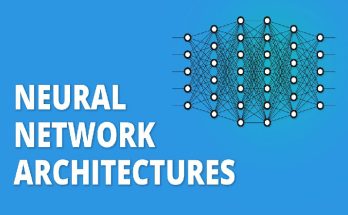The Future Landscape of AI in Healthcare
Future Landscape of AI in Healthcare will be elaborate here. In recent years, the integration of artificial intelligence (AI) into healthcare systems has transformed the way medical professionals diagnose diseases, treat patients, and manage healthcare data. This article explores the evolving landscape of AI in healthcare and its potential to revolutionize the industry in the future.

Understanding AI in Healthcare
AI refers to the simulation of human intelligence processes by machines, particularly computer systems. In healthcare, AI technologies encompass machine learning algorithms, natural language processing, robotics, and predictive analytics, among others. These tools analyze complex medical data, provide insights, and support clinical decision-making.
Current Applications of AI in Healthcare
Diagnostic Imaging: AI algorithms analyze medical images such as X-rays, MRIs, and CT scans to detect abnormalities and assist radiologists in diagnosing conditions like cancer, fractures, and cardiovascular diseases with greater accuracy and efficiency.
Drug Discovery and Development: AI accelerates the drug discovery process by analyzing large datasets to identify potential drug candidates, predict drug interactions, and optimize treatment regimens. This has the potential to revolutionize pharmaceutical research and development.
Personalized Medicine: AI algorithms analyze genetic, clinical, and lifestyle data to tailor treatment plans for individual patients, maximizing efficacy and minimizing adverse effects. This approach, known as precision medicine, holds promise for improving patient outcomes and reducing healthcare costs.
Virtual Health Assistants: AI-powered chatbots and virtual health assistants provide patients with personalized medical advice, reminders, and support, enhancing patient engagement and access to healthcare services.
Challenges and Opportunities
While AI offers immense potential to transform healthcare, several challenges must be addressed to realize its full benefits:
Data Privacy and Security: Protecting patient data from breaches and unauthorized access is paramount. Robust data encryption, access controls, and compliance with regulations such as HIPAA are essential to safeguard patient privacy.
Ethical Considerations: AI algorithms may inadvertently perpetuate bias or discrimination in healthcare delivery if not properly trained or validated. Ensuring fairness, transparency, and accountability in AI systems is critical to mitigate these risks.
Regulatory Hurdles: Healthcare regulations often lag behind technological advancements, posing barriers to the adoption and deployment of AI solutions. Streamlining regulatory processes and establishing clear guidelines for AI implementation can facilitate innovation in healthcare.
Healthcare Workforce Training: The integration of AI into healthcare requires healthcare professionals to acquire new skills in data analytics, machine learning, and AI interpretation. Investing in workforce training and education programs is essential to harness the full potential of AI in healthcare.
Despite these challenges, AI presents significant opportunities to enhance healthcare delivery, improve patient outcomes, and reduce healthcare disparities. By leveraging AI technologies responsibly and ethically, healthcare stakeholders can shape a future where accessible, affordable, and equitable healthcare is a reality for all.
The Future Outlook
Looking ahead, the future landscape of AI in healthcare holds promise for:
Early Disease Detection and Prevention: AI algorithms will continue to evolve to detect diseases at earlier stages, enabling timely interventions and preventive measures to improve patient outcomes.
Precision Medicine Advancements: Advances in genomic sequencing, AI-driven diagnostics, and targeted therapies will usher in a new era of precision medicine, where treatments are tailored to individual patient characteristics and genetic profiles.
Telemedicine and Remote Patient Monitoring: AI-powered telemedicine platforms and remote monitoring devices will enable patients to receive high-quality healthcare services from the comfort of their homes, enhancing access to care and reducing healthcare disparities.
Healthcare Automation: AI-driven automation of administrative tasks, such as medical billing, appointment scheduling, and electronic health record management, will streamline healthcare operations, reduce administrative burdens on healthcare providers, and improve overall efficiency.
Conclusion
The future of AI in healthcare is bright, with transformative potential to revolutionize the way healthcare is delivered, accessed, and experienced. By addressing challenges such as data privacy, ethical considerations, regulatory hurdles, and workforce training, healthcare stakeholders can harness the power of AI to improve patient outcomes, enhance healthcare quality, and advance medical innovation. As AI technologies continue to evolve and mature, the future landscape of healthcare holds promise for a more accessible, equitable, and patient-centered healthcare system for all.



